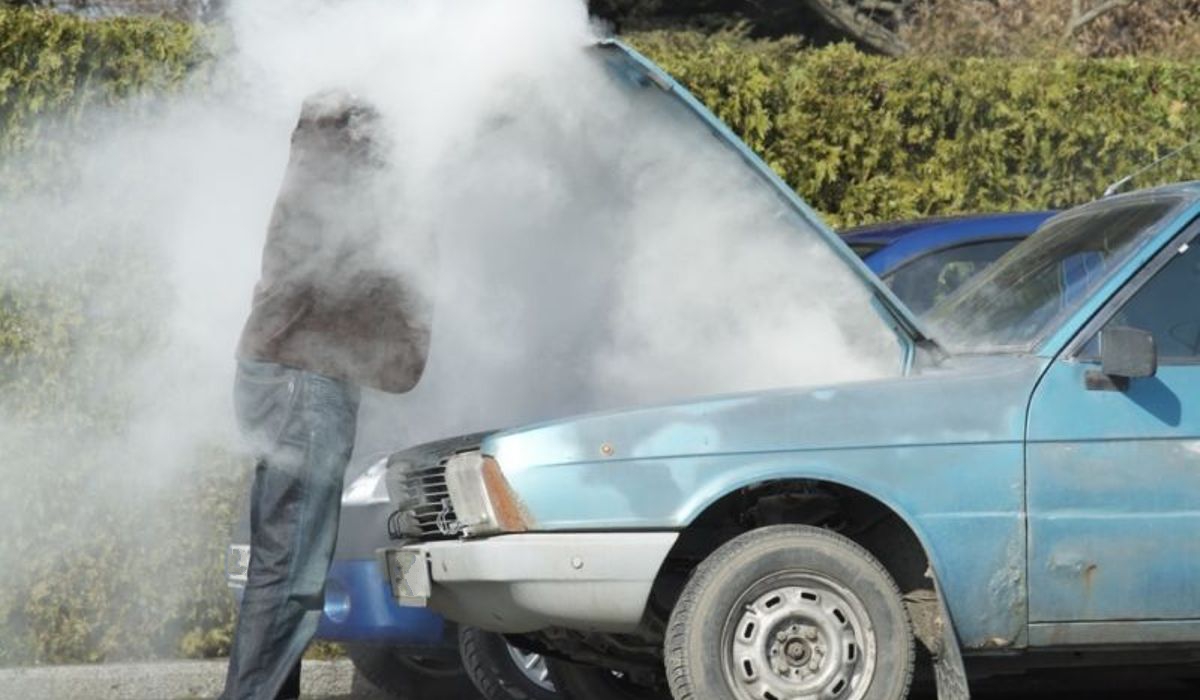At one time or another, many experienced car users have encountered a problem associated with engine overheating. Overheating is not a good problem to have because of it’s bad effects on the engine which includes burning or drying up of engine oil, it can also cause an overhead-cam to seize and break which can cause severe engine problems, just to mention a few. Knowing the causes of overheating is a very good way of avoiding it. Below are common causes of overheating and how to fix it.
Cooling System Leakage— Loss of coolant due to leakage is probably the most common cause of engine overheating. Possible leaking points include hoses, the radiator, heater core, water pump, thermostat housing, head gasket, freeze plugs, automatic transmission oil cooler, cylinder head(s) and block.
Make a careful visual inspection of your entire cooling system, and then PRESSURE TEST the cooling system and radiator cap. A pressure test will reveal internal leaks such as seepage past the head gasket as well as cracks in the head or block. A good system should hold 12 to 15 psi for 15 minutes or more with no loss in pressure. If it leaks pressure, there is an internal coolant leak (most likely a bad head gasket but possibly also a cracked cylinder or engine block).
Leaky Head Gasket— A leaky head gasket can allow coolant to seep into the engine’s cylinders or crankcase. Symptoms include a loss of coolant with no visible external leaks, and white steam in the exhaust, especially after restarting the engine when it has sit for awhile. A leaky head gasket can be diagnosed by pressure testing the cooling system, or by using a “block checker” that pulls air from the cooling system into a cylinder that contains a special blue colored leak detection liquid. If there are any combustion gases in the coolant, the color of the liquid inside the detector will change from blue to green.
A leaky head gasket can often be temporarily sealed by adding a sealer product to the cooling system. There are many such products available in auto parts stores, and most will temporarily stop or slow a coolant leak. Some products claim to offer a permanent repair. That’s a hard claim to prove. At best, the sealer will stop the leak indefinitely (or until you can sell or trade your vehicle). At worst, such products may not completely seal the leak and your engine will still overheat. If this is the case, the only way to fix the problem is to replace the leaky head gasket.
Fan Not Working— With mechanical fans, most engine overheating problems are caused by a faulty fan clutch, though a missing fan shroud can reduce the fan’s cooling effectiveness by as much as 50% (depending on the fan’s distance from the radiator) which may be enough to cause the engine to overheat in hot weather or when working hard.
If the fan clutch shows signs of fluid leakage (oily streaks radiating outward from the hub of the clutch), spins freely with little or no resistance when the engine is off, or wobbles when the fan is pushed in or out, it needs to be replaced. With an electric cooling fan, check to see that the fan cycles on when the engine gets hot and when the air conditioner is on. If the fan fails to come on, check the fan motor wiring connections, fan relay and temperature sensor. Try jumping the fan directly to the battery. If it runs, the problem is in the wiring, relay or sensor. If it fails to run, the fan motor is bad and needs to be replaced. With a hydraulic cooling fan, the fan must be turning fast enough to provide adequate cooling at idle and low speed. On average, the life of a fan clutch is about the same as a water pump. If one needs to be replaced, the other usually does too.
Leaky Water Pump— Any wobble in the pump shaft or seepage would call for replacement. In some instances, a pump can cause an engine to overheat if the impeller vanes are badly eroded due to corrosion or if the impeller has come loose from the shaft. The wrong pump may also cause an engine to overheat. Some engines with serpentine drive belts require a special water pump that turns in the opposite direction of those used on the same engine with ordinary V-belts.
It does not happen very often, but sometimes the water pump impeller can loosen up on the pump shaft and not turn, although the water pump pulley appears to be turning normally. If the impeller does not spin, there will be little or no circulation of coolant through the engine. The only way to know if this is the problem is to remove the water pump and check the impeller to see that is is tight on the shaft. Also, some plastic impellers can become severely eroded over time. The water pump housing and/or impeller may also experience cavitation erosion. The loss of blade area or an increase in clearance between the housing and impeller will reduce the flow of coolant and can lead to engine overheating.
Slipping Belt— Check belt tension and condition. A loose belt that slips may prevent the water pump from circulating coolant fast enough and/or the fan from turning fast for proper cooling.
Lower Radiator Hose Collapsing— A pinched hose (upper or lower) or a lower radiator hose that is collapsing and blocking the flow of coolant when the engine is running can cause engine overheating. The lower hose usually has a metal reinforcing wire inside that looks like a large spring. It’s purpose is to prevent the hose from collapsing when the water pump is pulling water through the hose. If this wire is missing or has failed due to corrosion, the hose may collapse.
Plugged or Dirty Radiator— Dirt, dead insects and debris can block air flow through the radiator and reduce its ability to dissipate heat. Internal corrosion and an accumulation of deposits can also block the flow of coolant.
A good way to find internal clogs is to use an infrared thermometer to “scan” the surface of the radiator for cold spots. If clogged, the radiator should be removed for cleaning or replaced. Backflushing the cooling system and/or using chemical cleaners can remove rust and hard water scale, but may do little to open up a clogged radiator. Using a pressure wash to blast out dirt particles from the radiator is also a good option, this service can be render at most carwashes. When refilling the cooling system, be sure you get it completely full. Air pockets in the head(s), heater core and below the thermostat can interfere with proper coolant circulation and cooling. If the cooling system has no bleeder valves to vent air, you may have to temporarily loosen a heater hose to get all the air out of the system.
Excessive Exhaust Backpressure— A clogged catalytic converter will restrict the flow of exhaust and cause heat to back up in the engine. Other causes include a crushed exhaust pipe or a collapsed double wall pipe. Check intake vacuum at idle. If intake vacuum reads low and continues to drop, inspect the exhaust system.
Overheated Incoming Air— In older vehicles with a carburetor or throttle body injection, check the operation of the heated air intake system on the air cleaner. If the temperature control valve is stuck so only heated air from around the exhaust manifold is drawn into the air cleaner, it may contribute to detonation and/or engine overheating. Also check the heat riser valve for manifold heat in older V6 and V8 engines. If stuck shut, it may be overheating the intake manifold.
Dragging Brakes— A disc brake caliper that is sticking or a parking brake that is not releasing may be making your engine work harder than normal to overcome the friction. Check the brakes and fix as needed.
Overworking the Engine— The cooling system in many passenger cars today are marginal and have little excess capacity to handle extra heat generated by towing or high speed mountain driving in hot weather. Replacing the original stock radiator with a larger or thicker radiator can improve cooling capacity.
In need of professional assistance with your vehicle problem? Find an experience car technician HERE
 Spot Dem Everything About Cars
Spot Dem Everything About Cars







My car engine over heats so much
Very informative, I have been dealing with this issue before it was rectified. Now I have more knowledge about this.